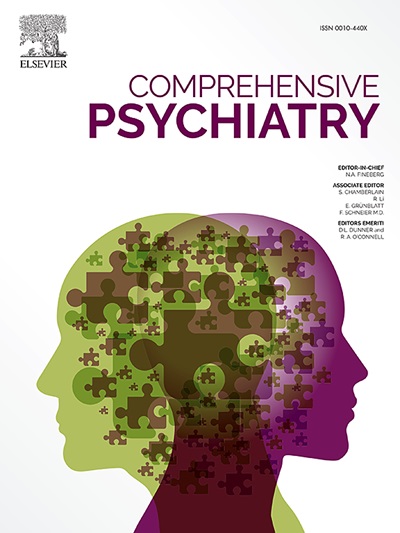Changes in recreational drug use, reasons for those changes and their consequence during and after the COVID-19 pandemic in the UK
IF 4.2
2区 医学
Q1 PSYCHIATRY
引用次数: 0
Abstract
Changes in drug use in the general population during the COVID-19 pandemic and their long-term consequences are not well understood. We employed natural language processing and machine learning to analyse a large dataset of self-reported rates of and reasons for drug use during the pandemic, along with their associations with anxiety, depression and substance use problems post-pandemic. Our findings revealed a transient decrease in drug use at the pandemic's peak, primarily attributed to reduced social opportunities. Conversely, some participants reported increased drug use for self-medication, boredom, and lifestyle disruptions. While users of psychedelics and MDMA had anxiety and depression rates similar to non-users, users of opioid agonists and depressants—representing one in ten active drug users—reported greater mental health challenges post-pandemic. These results suggest that a subset of active drug users with distinct profiles faces elevated risks, particularly for anxiety and depression, and may benefit from targeted support.
娱乐性药物使用的变化,这些变化的原因及其在英国COVID-19大流行期间和之后的后果
COVID-19大流行期间普通人群药物使用的变化及其长期后果尚不清楚。我们使用自然语言处理和机器学习来分析大流行期间自我报告的药物使用率和原因的大型数据集,以及它们与大流行后焦虑、抑郁和药物使用问题的关联。我们的研究结果显示,在大流行的高峰期,药物使用出现了短暂的减少,这主要归因于社会机会的减少。相反,一些参与者报告说,由于自我治疗、无聊和生活方式中断,他们增加了药物使用量。虽然致幻剂和MDMA使用者的焦虑和抑郁率与非使用者相似,但阿片类激动剂和抑郁剂使用者(占活跃吸毒者的十分之一)在大流行后报告了更大的精神健康挑战。这些结果表明,具有不同特征的一部分活跃吸毒者面临着更高的风险,特别是焦虑和抑郁,并且可能从有针对性的支持中受益。
本文章由计算机程序翻译,如有差异,请以英文原文为准。
求助全文
约1分钟内获得全文
求助全文
来源期刊

Comprehensive psychiatry
医学-精神病学
CiteScore
12.50
自引率
1.40%
发文量
64
审稿时长
29 days
期刊介绍:
"Comprehensive Psychiatry" is an open access, peer-reviewed journal dedicated to the field of psychiatry and mental health. Its primary mission is to share the latest advancements in knowledge to enhance patient care and deepen the understanding of mental illnesses. The journal is supported by a diverse team of international editors and peer reviewers, ensuring the publication of high-quality research with a strong focus on clinical relevance and the implications for psychopathology.
"Comprehensive Psychiatry" encourages authors to present their research in an accessible manner, facilitating engagement with clinicians, policymakers, and the broader public. By embracing an open access policy, the journal aims to maximize the global impact of its content, making it readily available to a wide audience and fostering scientific collaboration and public awareness beyond the traditional academic community. This approach is designed to promote a more inclusive and informed dialogue on mental health, contributing to the overall progress in the field.
 求助内容:
求助内容: 应助结果提醒方式:
应助结果提醒方式:


